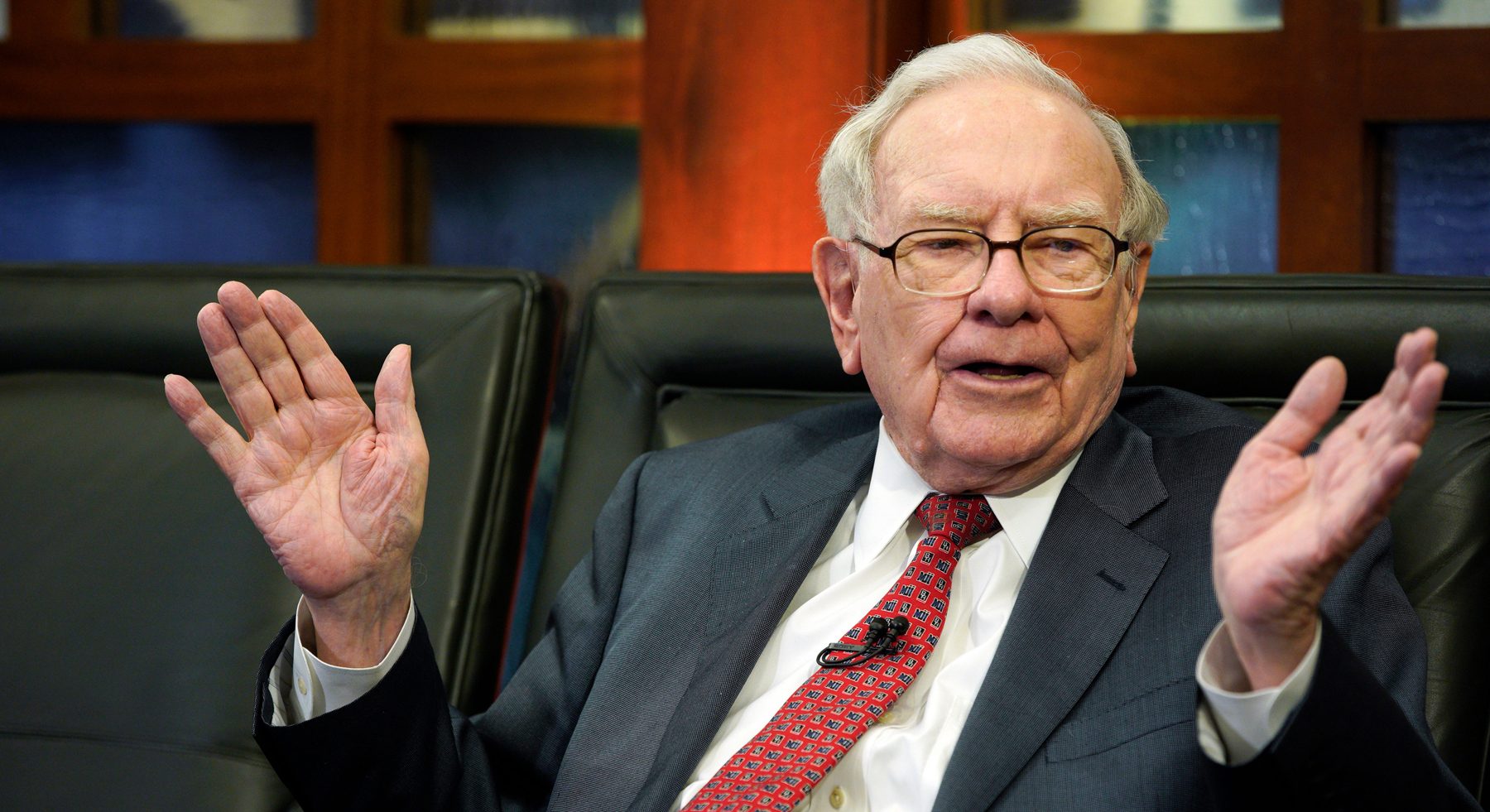Berkshire Hathaway Reduces Apple Holdings as Warren Buffett Adjusts Investment Strategy
03.11.2024 13:00 2 min. read Alexander Stefanov
Berkshire Hathaway, under Warren Buffett's leadership, has significantly reduced its Apple holdings for the fourth consecutive quarter, now valued at approximately $69.9 billion, down from a peak of $174.3 billion in late 2023.
This recent divestment saw a nearly 25% cut, leaving Berkshire with around 400 million shares, following an earlier quarter in which over a third of its Apple stake was sold. The total value of its Apple investment plummeted nearly $100 billion in two quarters.
This trend of reducing stakes isn’t limited to Apple; Berkshire also cut its investment in Bank of America by $9 billion. Overall, the conglomerate sold about $36 billion in equities in Q3, raising its cash reserves to an unprecedented $325.2 billion.
Analysts suggest that these moves may be driven by Apple’s premium valuation, currently trading at 31 times expected earnings, alongside concerns about potential capital gains tax hikes.
Berkshire’s strategy appears to prioritize diversification, especially as Apple once represented half of its equity portfolio. In addition, the company has paused its share buyback program, spending only $345 million on repurchases in Q2 after previously investing $2 billion quarterly.
Despite these adjustments, Berkshire’s Class A shares have risen by 25% in 2024, outperforming the S&P 500’s 20% return, indicating a focus on preserving capital amid economic uncertainties. While Buffett’s sales may raise concerns about confidence in Apple, the tech giant remains Berkshire’s largest investment, reflecting its brand loyalty and market position.
-
1
Donald Trump Signs “One Big Beautiful Bill”: How It Can Reshape the Crypto Market
05.07.2025 9:56 2 min. read -
2
What’s Driving July’s Crypto Conversations, According to Santiment
05.07.2025 22:00 2 min. read -
3
Robinhood Faces Scrutiny from European Bank Over Tokenized Stock Offerings
08.07.2025 12:10 2 min. read -
4
At Least Five Law Firms Target Former Strategy Over Misleading BTC Risk Disclosures
28.06.2025 10:30 2 min. read -
5
Weekly Recap: Key Shifts and Milestones Across the Crypto Ecosystem
06.07.2025 17:00 4 min. read
Stablecoins Now Used in Credit Cards, Putting Bank Deposits at Risk
Stablecoins are no longer just a crypto-native tool—they’re reshaping financial access, payments, and even central banking dynamics.
BitGo Files Confidentially for IPO With SEC
BitGo Holdings, Inc. has taken a key step toward becoming a publicly traded company by confidentially submitting a draft registration statement on Form S-1 to the U.S. Securities and Exchange Commission (SEC).
Crypto Greed Index Stays Elevated for 9 Days — What it Signals Next?
The crypto market continues to flash bullish signals, with the CMC Fear & Greed Index holding at 67 despite a minor pullback from yesterday.
U.S. Public Pension Giant Boosts Palantir and Strategy Holdings in Q2
According to a report by Barron’s, the Ohio Public Employees Retirement System (OPERS) made notable adjustments to its portfolio in Q2 2025, significantly increasing exposure to Palantir and Strategy while cutting back on Lyft.
-
1
Donald Trump Signs “One Big Beautiful Bill”: How It Can Reshape the Crypto Market
05.07.2025 9:56 2 min. read -
2
What’s Driving July’s Crypto Conversations, According to Santiment
05.07.2025 22:00 2 min. read -
3
Robinhood Faces Scrutiny from European Bank Over Tokenized Stock Offerings
08.07.2025 12:10 2 min. read -
4
At Least Five Law Firms Target Former Strategy Over Misleading BTC Risk Disclosures
28.06.2025 10:30 2 min. read -
5
Weekly Recap: Key Shifts and Milestones Across the Crypto Ecosystem
06.07.2025 17:00 4 min. read


